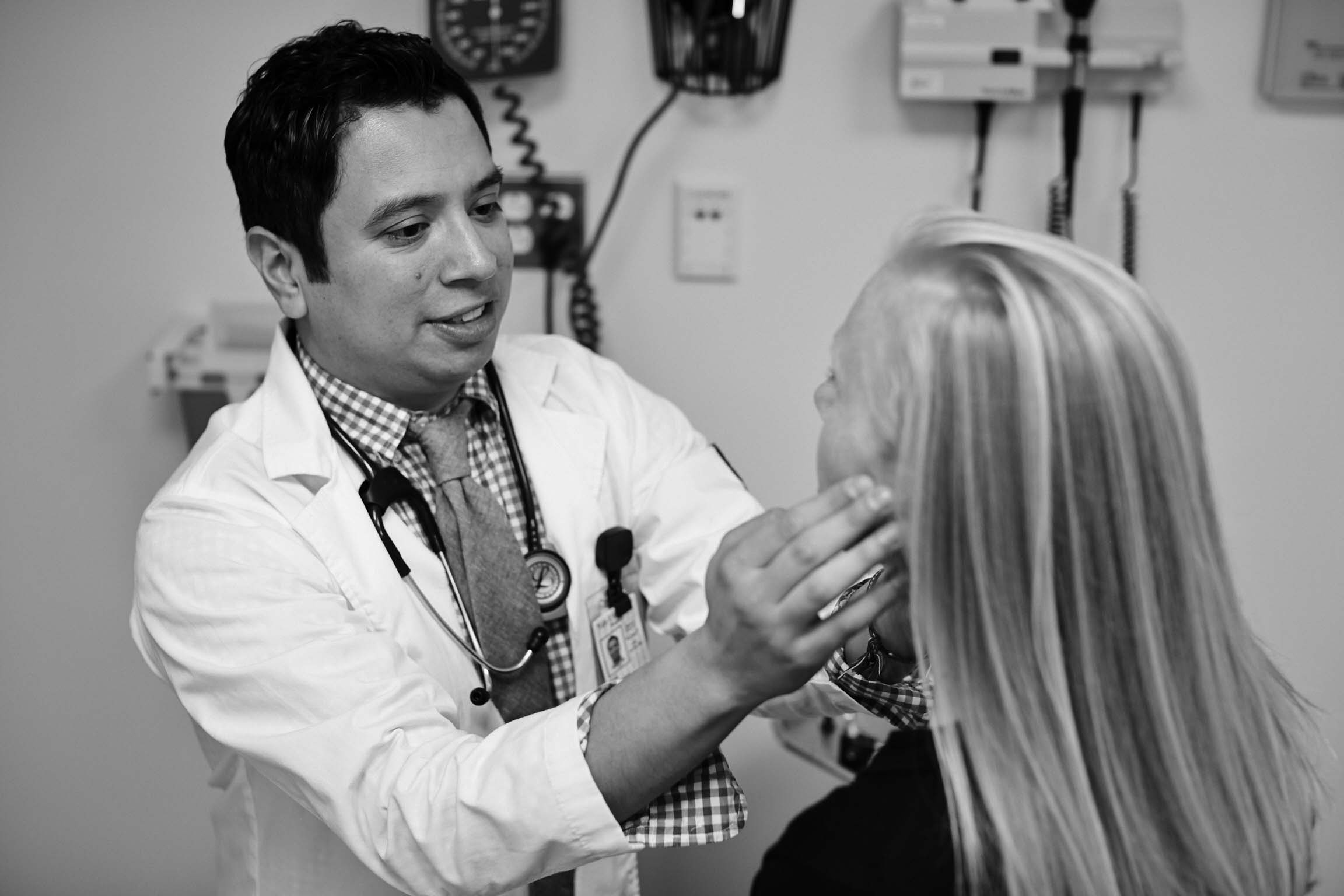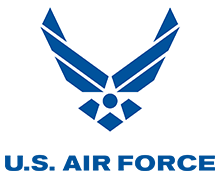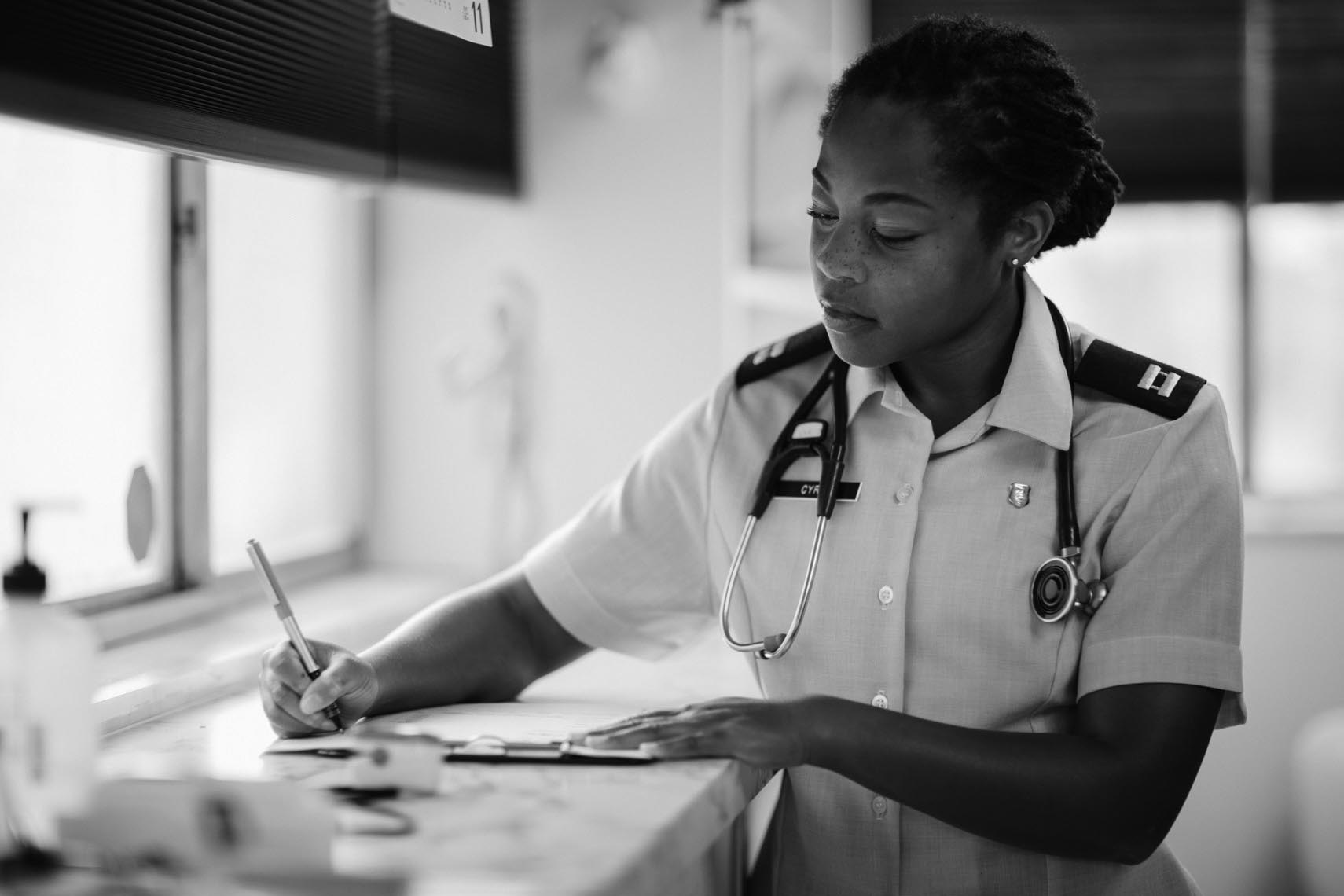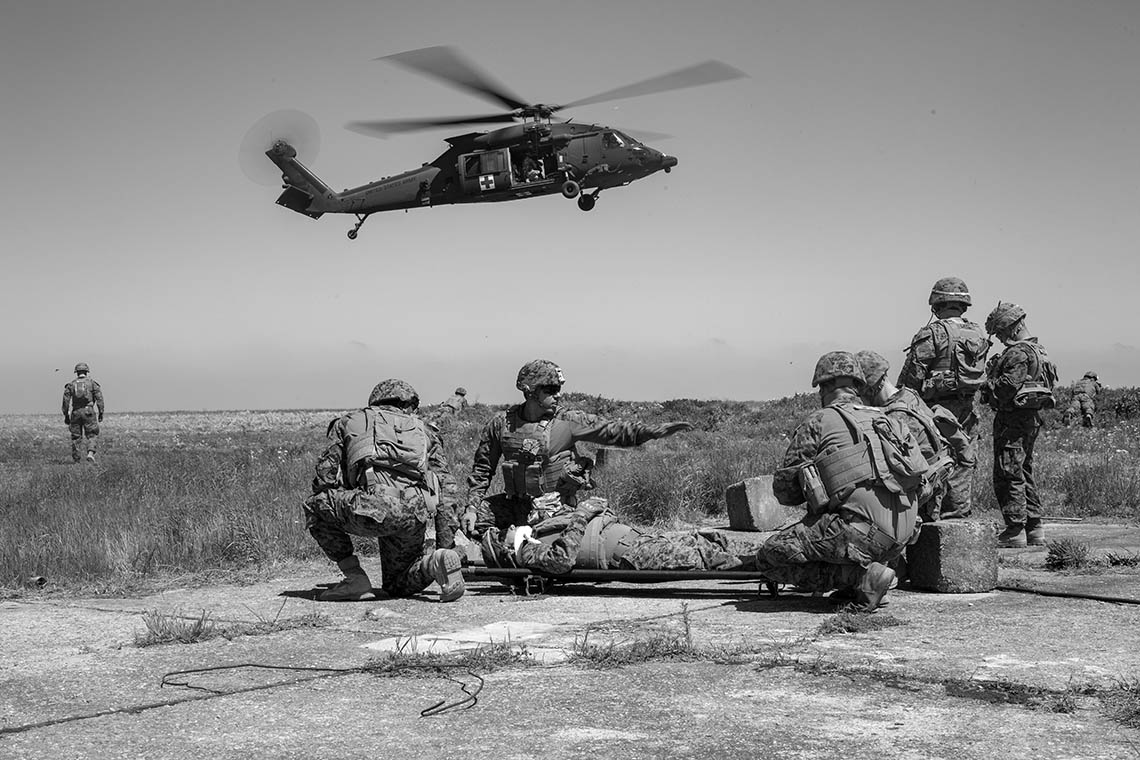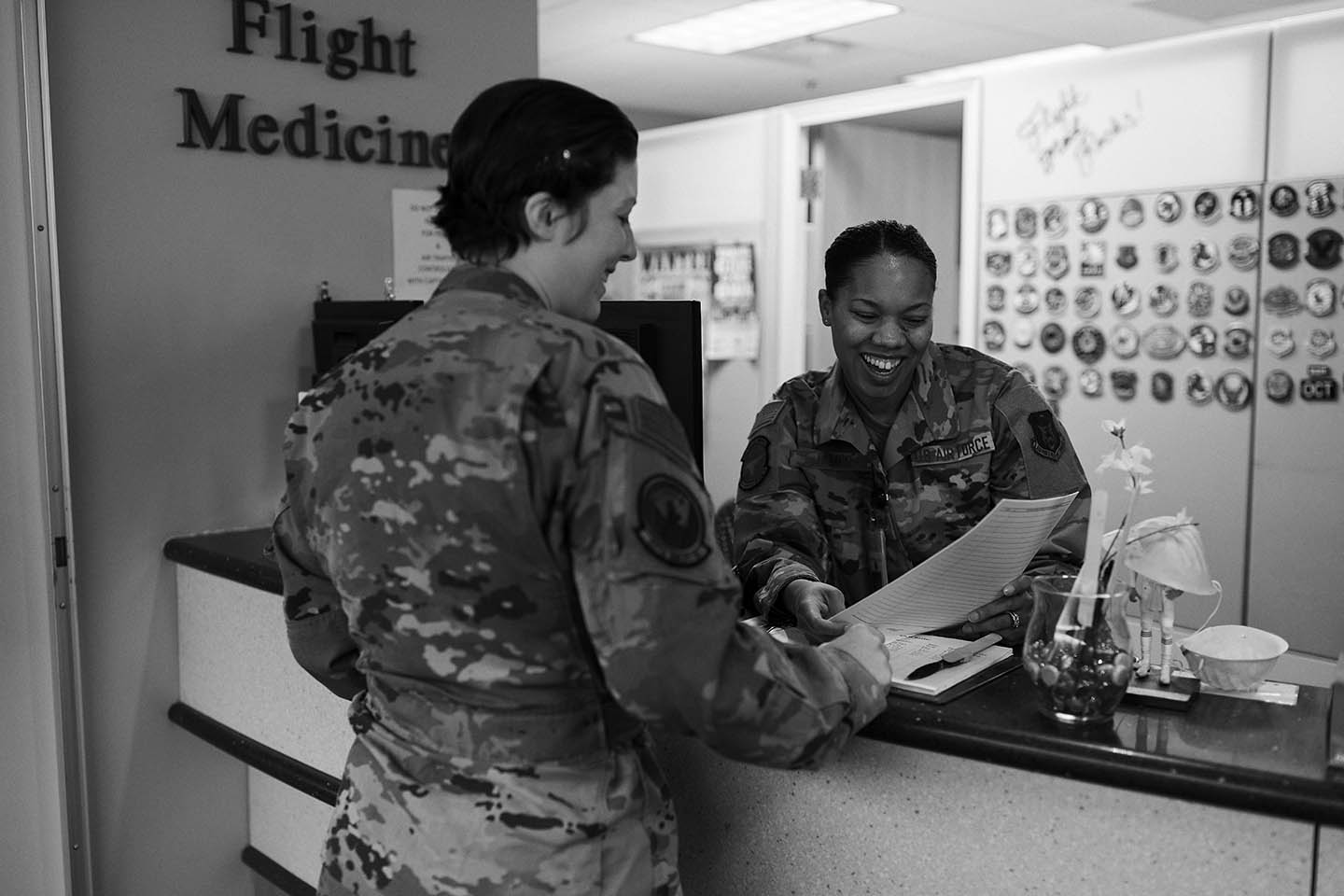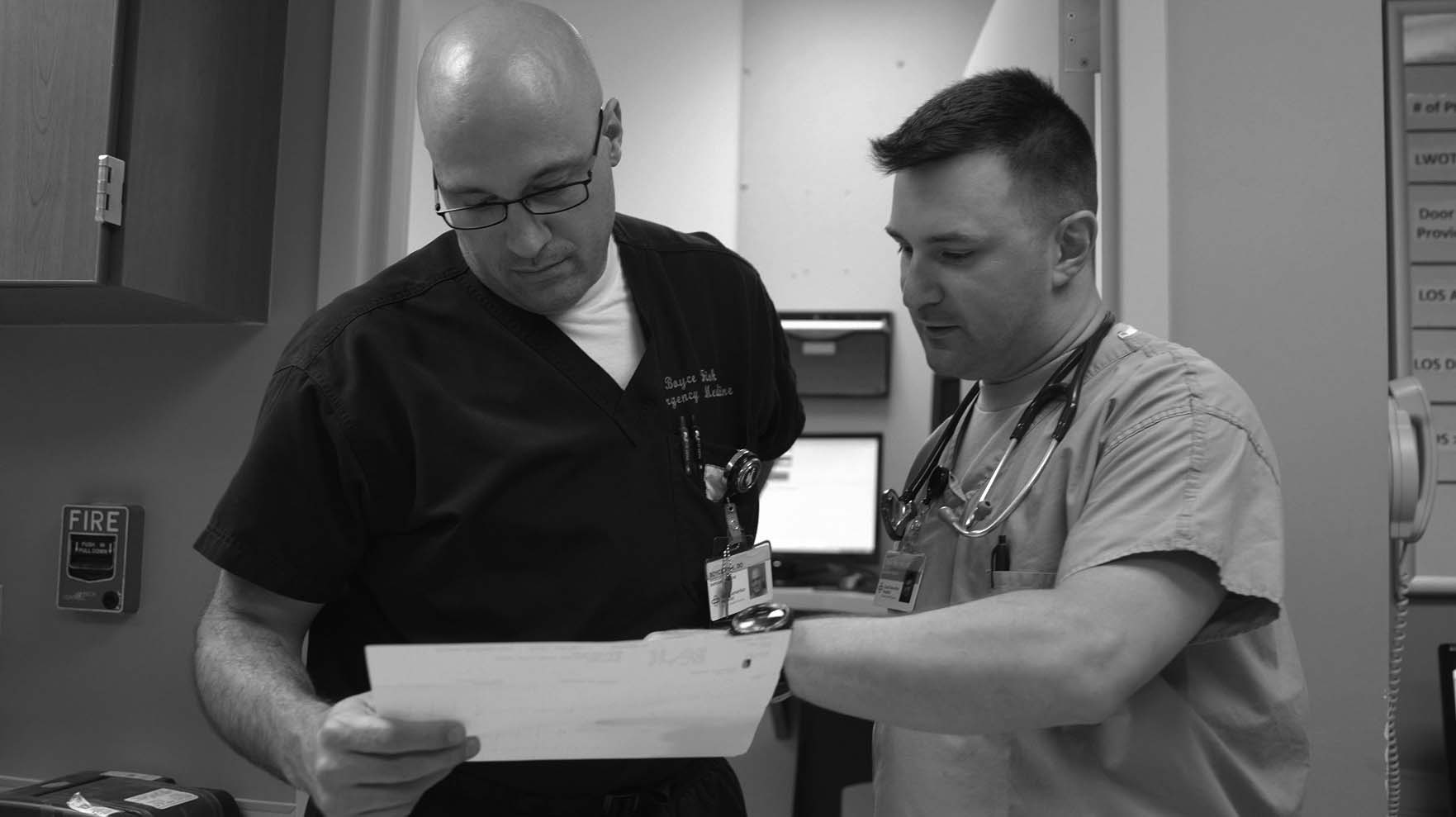- FAQs
- |
Part-Time Service Options
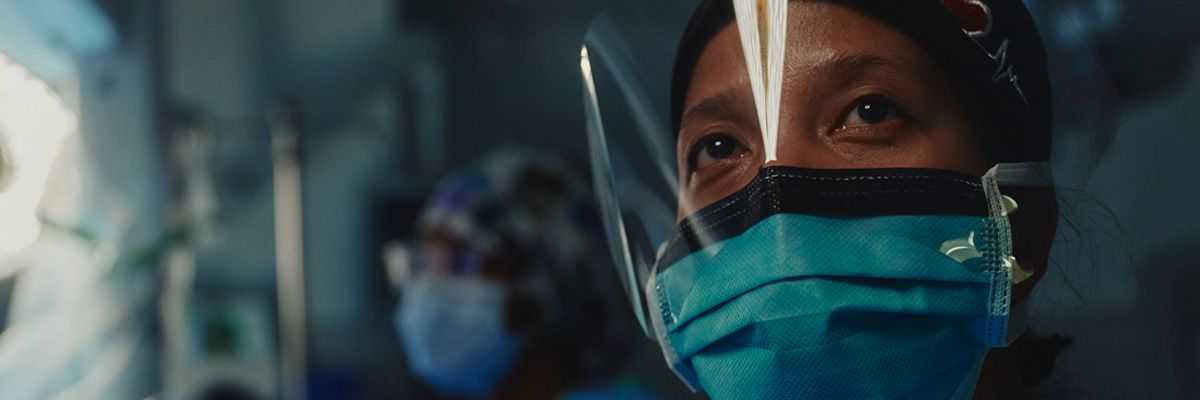
Serving part time means you are part of a global, highly qualified team of military physicians and healthcare professionals. You may serve in a military medical center, clinic, field hospital or community center. You could also have the opportunity to serve in a civilian facility, hospital or clinic, or a location close to your home. In any case, you will be in a learning environment where creativity and leadership skills are tested and pushed into new dimensions of care. In addition, it is important to understand that a physician’s specialty and need for that specialty may have a bearing on acceptance into a Service branch.
Medical students and residents serving part time can participate in stipend programs to help pay for schooling. Regardless of where you are in training, a part-time service commitment provides flexibility, invaluable experience and other benefits.
Capt. Ross, Reserve Physician - Continuing to Lead
Hear a Navy Reserve service member discuss how he leads and helps his peers become a functioning unit.
Capt. Ross, Reserve Physician - Continuing to Lead
Hear a Navy Reserve service member discuss how he leads and helps his peers become a functioning unit.
ROSS: This is the hardest thing for a lot of physicians to learn when they get into the Navy is that you’re a medical officer and the officer is the key. It's the anchor.
You have skills that the other people may not have but you’re also expected to be a leader and to be part of a medical team,
and that has actually turned out to be the most enjoyable part of my job.
My first half of my career I wanted to be a physician and I wanted to spend my time with patients.
When I got out, I realized that I kind of missed that the bonding that occurs with other service members and that teamwork feeling.
And I could just feel it, and I wasn’t getting it in the civilian side, and so I joined the Reserves.
This is kind of where I really kind of changed my career from being just a physician to a physician and leader.
I started to realize that the best thing I can do is not necessarily just what I can do with my hands but what I can do to help a group of people become a functioning unit so that they’re ready to deploy forward to take care of service members.
If you’re on a special mission like the Navy Reserves, we have our day jobs, but then on the weekend we put on a different uniform.
We don’t put our physician uniform on. We put our military officer uniform on.
That bond that you create with people you serve with is what keeps me going – you know, keeps me going back.
My wife would often say when I’m calling home on Sunday on my way home that I have this brightness in my voice after my drill weekend
because I’m working with people who are there because they want to be every single day, and that creates a kind of a unique group of people.
Col. Paul Phillips III 60
Hear from a physician about why he loves practicing medicine as a Reservist in the Military.
Col. Paul Phillips III 60
Hear from a physician about why he loves practicing medicine as a Reservist in the Military.
PHILLIPS: I think the reason why I serve in the Army Reserve is to continue to give back, not only to my country but also give back to those in need that are injured in times of conflict and I think also to be able to utilize my skills as an orthopedic surgeon where they are ever needed throughout the world it makes me a better civilian. On the side it makes me a better
American, I think it makes me a better leader. I think being in the Army Reserve and having multiple deployments has allowed me to bring home techniques of of critical thinking to my private practice to my patients here. I think that every deployment I learned something new.
I’m colonel Paul Philips III and I’m an orthopedic surgeon in the United States Army Reserve.
Day In The Life
Surgeon Sara Burdash explains how she strikes a balance between her civilian job and military duties.

Sara Burdash, M.D.
Field Surgeon, Army National Guard
Practice Medicine in the Army National Guard
As she leaves for once-a-month military training, Sara explains her part-time commitment as a member of the Army National Guard.
BURDASH: In the National Guard, we have two roles. We have duties both to our state and our local communities, as well as to the nation. And so, we all have civilian jobs that we work at mostly. And then, one weekend a month, and two weeks in the summer, we get to go to our National Guard training, and whether it be locally for us, or a little bit further away, like we’re going today to Camp Ripley. If we are needed, either nationally if there’s a national disaster or something like that, where they need a medical unit in this case, we’ll go assist with that. Or if there’s an international need, a peace treaty, some sort of combat mission, then we get to go to those as well. So, we have multiple purposes we can fill.

